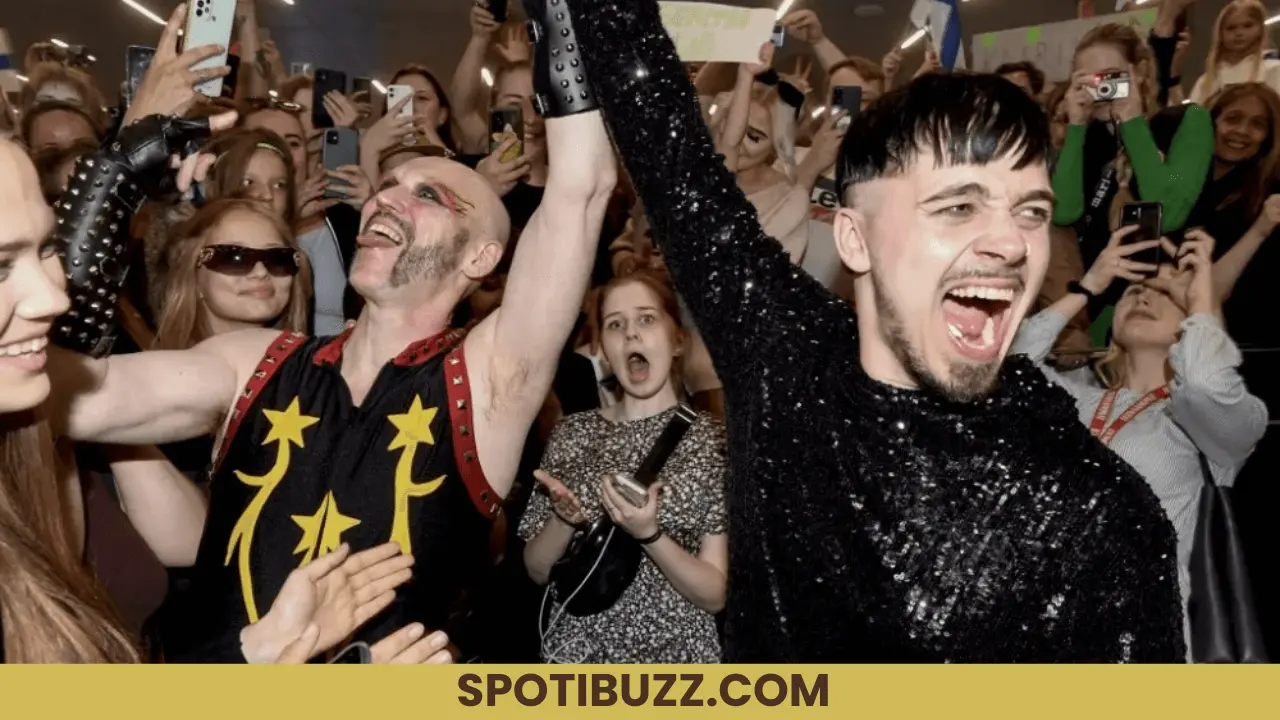Eurovision bop ‘Cha Cha Cha’ becomes first Finnish song to top Spotify chart
‘Cha Cha Cha’ by Finnish rapper and singer Käärijä is the first Finnish song to top Spotify’s global ranking. Discover the story behind this Eurovision hit and what it means for Finnish culture and music.
Music lovers around the world have been charmed by a catchy song called ‘Cha Cha Cha’ by Finnish rapper and singer Käärijä. The song, entirely in Finnish, has become a global sensation after it came second in this year’s Eurovision Song Contest. It has also made history by becoming the first Finnish song to top the global ranking on Spotify, the world’s largest music streaming platform.
But do you know the story of this song, or are you aware that how this song wins hearts? Is this song will impact the Finland music industry? Here we are going to explore answers to all these questions. Let’s explore how this song became a hit, its representation of Finnish culture, and some background history of this song.
How did ‘Cha Cha Cha’ become a global hit?
‘Cha Cha Cha’ song is a catchy and humorous tune that mixes rap and pop elements. The lyrics are about having fun and dancing the cha-cha-cha, a popular Cuban dance rhythm that emerged in the 1950s. The song was selected as Finland’s entry for the Eurovision Song Contest after winning the national selection show Uuden Musiikin Kilpailu (UMK) in February 2023. Käärijä performed the song in the second semi-final of the contest, held in Rotterdam, Netherlands, on May 18. He qualified for the final, which took place on May 20.
In the international competition’s final, Käärijä received 526 votes, with TV viewers contributing 366 of those points. He came second, behind Sweden’s Loreen, who won 615 votes, and her song ‘Tattoo.’ Käärijä’s result was the best for Finland since Lordi’s victory in 2006 with ‘Hard Rock Hallelujah.’ It was also the first time that a song in Finnish reached the top three of Eurovision.
The song became a global sensation after the contest, especially on Spotify, the world’s largest music streaming platform. It topped the Spotify global ranking on May 21, becoming the first Finnish song to achieve this feat. It also reached number one on Spotify’s charts in several countries, such as Germany, France, Spain, Italy, Poland, and Australia.
As of May 23, the song had been streamed over 3 million times on Spotify. The song also received positive reviews from critics and fans, who praised its originality, energy, and humor. Many people commented on social media that the song made them smile and dance. Some celebrities and politicians also expressed their support and admiration for Käärijä and his song. For example, Finnish Prime Minister Sanna Marin tweeted: “Congratulations Käärijä! You made us proud and happy!”
How ‘Cha Cha Cha’ compares to other Eurovision songs
‘Cha Cha Cha’ is a unique and original song that stands out among other Eurovision songs for several reasons:
- It is one of the few songs entirely in Finnish, a language rarely heard on the Eurovision stage.
- It is a song that mixes rap and pop elements, creating a catchy and humorous tune that invites people to dance and have fun.
- The song also features some wordplay and puns in Finnish, such as “käsi kädessä” (hand in hand) and “käsi kädes” (hand on hand).
- This song has a strong visual and performance aspect, as shown by Käärijä’s energetic and colorful show at Eurovision.
How ‘Cha Cha Cha’ represents Finnish culture and music
The song represents Finnish culture and music by incorporating elements of Finnish folk music, such as the kantele (a traditional plucked string instrument), the jouhikko (a bowed lyre), and the run-song (a type of oral poetry). The chorus is based on a traditional Finnish folk melody, and Finnish proverbs and sayings inspire the lyrics. The song’s title, ‘Cha Cha Cha,’ is a reference to both the dance style and the Finnish word ‘chacha,’ which means ‘cheers’ or ‘bottoms up.’ The song celebrates Finnish identity, diversity, and creativity in the global music scene.
Frequently Asked Questions
Final Analysis
‘Cha Cha Cha’ by Käärijä is a remarkable song that showcases the diversity and creativity of Finnish music and culture. It is a fusion of rap, electronic music, metal, and schlager, with influences from Finnish folk music and proverbs. It is also a catchy and upbeat song that celebrates life, love, and pina coladas. The song has achieved a historic feat by becoming the first Finnish song to top the global ranking on Spotify and placing second in the Eurovision Song Contest 2023. ‘Cha Cha Cha’ is a song that deserves to be heard and enjoyed by music lovers around the world.







